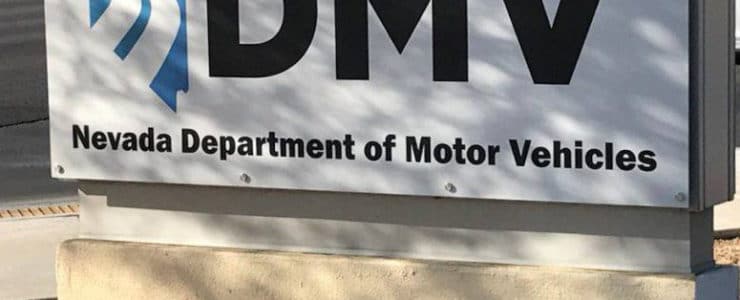
When we witness a car accident or come across the aftermath of one, we often assume that it was caused by distracted driving, speeding, or phone use.
However, it’s important to note that the cause could also be a medical emergency. A driver may be driving normally and suddenly experience a medical issue that causes them to lose control and crash. This can lead to minor or serious accidents.
Even if a car crash is caused by a medical issue, the driver will still face a ticket and other penalties. Although it’s unfortunate, the fact that an accident occurred means there will be other consequences. In addition to receiving a ticket, individuals involved in a crash caused by a medical episode may lose their license.
A driver’s license could be suspended if the authorities deem that the health of a driver causes them to be a danger on the road. A driver in Nevada does not just have to get in a wreck to alert authorities that they have a medical issue that can make them dangerous on the road.
If you ever find yourself with a suspended license due to a medical issue or because someone reported on you (see below) then you do have options to get it back. Reaching out to your doctor is one way but you may also want legal help to expedite the scenario and to ensure that all procedures are done properly to get you back on the road.
Ticket Busters can help with this and we are easy to reach with our large office being located in downtown Las Vegas. If you are not able to get to us physically then you can simply call or email us. Aside from you being reported to the DMV by the police after a car crash, there are other ways that the Nevada Department of Motor Vehicles (DMV) can find out this information about you.
The other communication methods include:
Reports / Notifications from Your Doctor or Medical Provider
Before you get mad at your doctor for informing the authorities on your medical issues, it’s important to know that doctors are legally obligated to inform the DMV if their health assessment suggests that one’s driving abilities may be impaired. When this situation happens, the Nevada DMV will not question it or reach out to you as the driver for your thoughts and rebuttal.
You will likely find out that this happened through a letter in the mail and although your license will be suspended at that point, you do have options.
If you can provide sufficient proof of your good health from a doctor or a more recent physical explaining that the symptoms and original diagnosis have subsided, then you could get your license back. Although the details of your health are still confidential (doctor-patient privilege), the DMV will simply get a generic notification from your health provider explaining that you are not safe to drive.
You May Report Yourself
Just like a doctor’s responsibility of reporting a danger to the road, you also have that obligation.
Whether you go to a doctor or not, you are the one who truly knows if you should not be driving.
If you have had some close calls then that is a sign to stop driving before you seriously hurt someone or yourself. Neither a doctor nor you would want to have that on their conscience.
The DMV has some specific rules about this that need to be disclosed at the time of renewing your driver’s license.
These rules of specific issues that need to be disclosed are guided by the Nevada Administrative Code (NAC) number 483.330 and would include:
- Lapse of consciousness: If you have experienced symptoms such as dizziness, fainting spells, epileptic seizures, or diabetes within the last three years or so, you are required to disclose this information.
- Cardiovascular issues: This one also applies to the most recent three-year period and pertains to anyone with a cardiovascular ailment that could cause issues with the person safely operating their vehicle. Specific ailments could include angina pectoris, myocardial infarction, angina pectoris, coronary insufficiency, and thrombosis. Other forms of cardiovascular disease that are accompanied by syncope, dyspnea, collapse, or congestive cardiac failure would also need to be disclosed.
- Mental health problems: These rules do not just apply to physical issues as mental health disorders are also included because they could bring issues to drivers in Nevada. If you suffer from nervous disease or psychiatric disorders then that could be an issue for you to continue driving in the streets of Nevada.
- If you have a physical condition that does not allow you to safely operate a vehicle then that is an obvious problem. Conditions that fall under that umbrella could include rheumatic, arthritic, orthopedic, muscular, neuromuscular or vascular disease.
- Eyesight: It is safe to say that if you cannot see properly, then you likely cannot drive effectively. If you use glasses or contact lenses then that is fine but a driver in Nevada must have 20/40 eyesight in both eyes.
If you don’t disclose a medical issue during your driver’s license renewal, the DMV examiner can report it and your license may be suspended. Having a medical restriction added to your license in Nevada doesn’t result in any extra fees from the DMV.
A Relative May Request an Examination
Sometimes a person who has health issues may be too stubborn to realize that they are a danger to other drivers.
Most people do not want to admit that they are no longer fit to drive. Not to mention it becomes a big inconvenience to not simply be able to get in your car and go wherever you want whenever you please. By not having a driver’s license, you then have to depend on other forms of transportation or people to assist you and that is not welcomed by many who prefer to be self-sufficient.
If someone believes that a person is a hazard on the roads, a relative within the third degree of consanguinity can file a report with the DMV for a health assessment. There are certain requirements, and only a person related to the individual can make the report. The person must genuinely believe in good faith that the other person poses a risk to Nevada’s roads.
Facing Suspension of Your Driver’s License? We Can Help
If you feel as if you have been wrongly accused by someone, then speaking with your doctor and getting a written statement and report from them stating that you are safe to drive might just be the remedy you need. However, the process can take long, and sometimes a doctor may not be available to create those reports at your notice.
Another aspect to consider is that if you have a suspended license and a doctor signs off that you’re fit to drive, but you end up causing an accident due to a medical issue that comes up later, the doctor could be held responsible.
So, if you find yourself in this situation, you should seek out legal help with Ticket Busters. Our initial call or meeting is free of charge to you and utilizing that time we will come up with a strategy to attempt to get you driving again.
If you ever need to contest a license suspension, you can do so by obtaining a hearing with the Department of Motor Vehicles. Again, the legal team at Ticket Busters can assist you with this. To request a hearing, you need to submit a written request and cannot make the request over the phone or in person. You must request the hearing from one of the hearing offices specifically and not from any DMV in Nevada.
There are only three of those within the state with one being conveniently located in Las Vegas. The other two can be found in Carson City to service the other large area of population in the state and the third is in Elko, NV to serve the eastern part of the state.
If all of this sounds overwhelming to you then call Ticket Busters as we can help with the process.
Our office can explain the process to you in detail and provide a clear plan for how we will help you get back on the roads as soon as possible.



